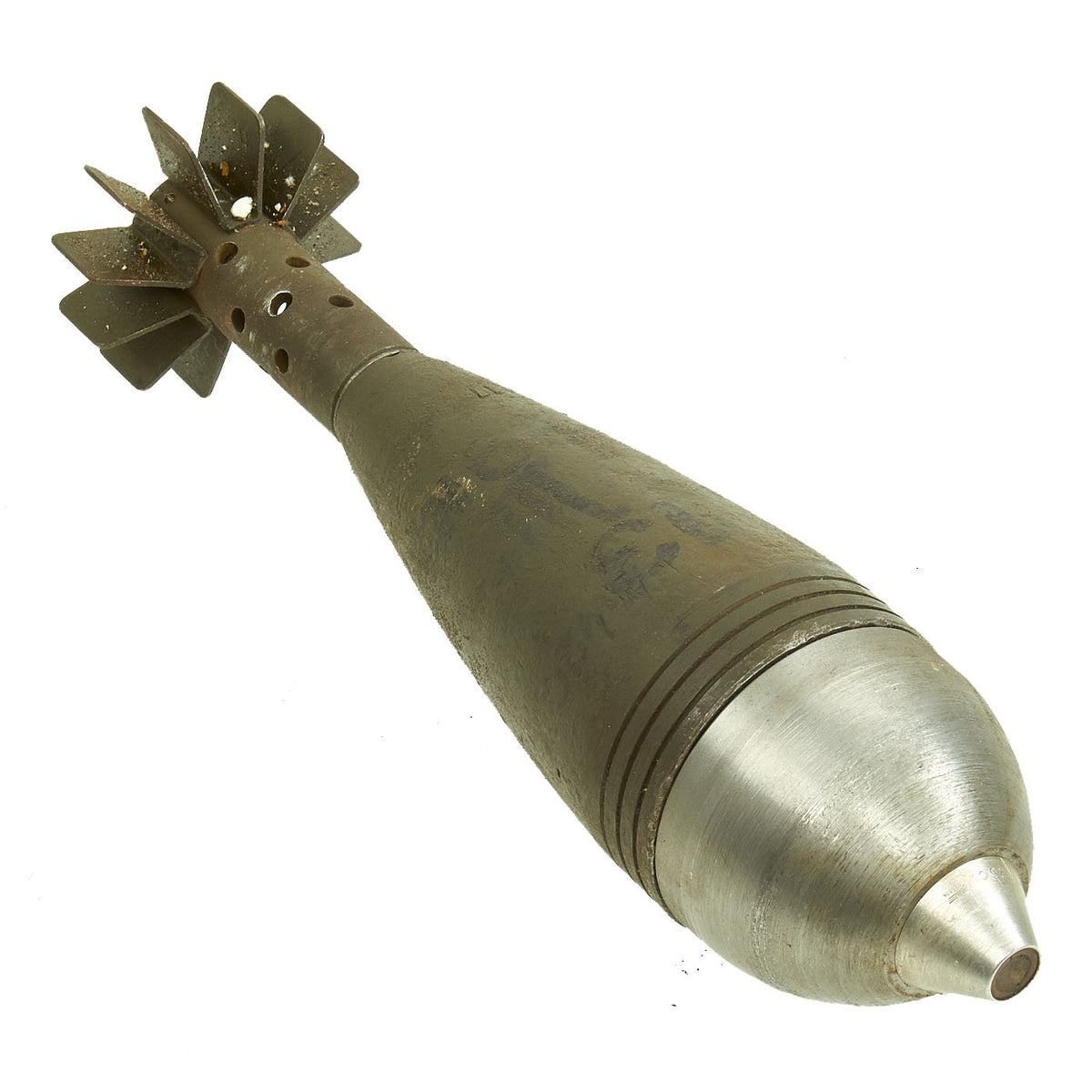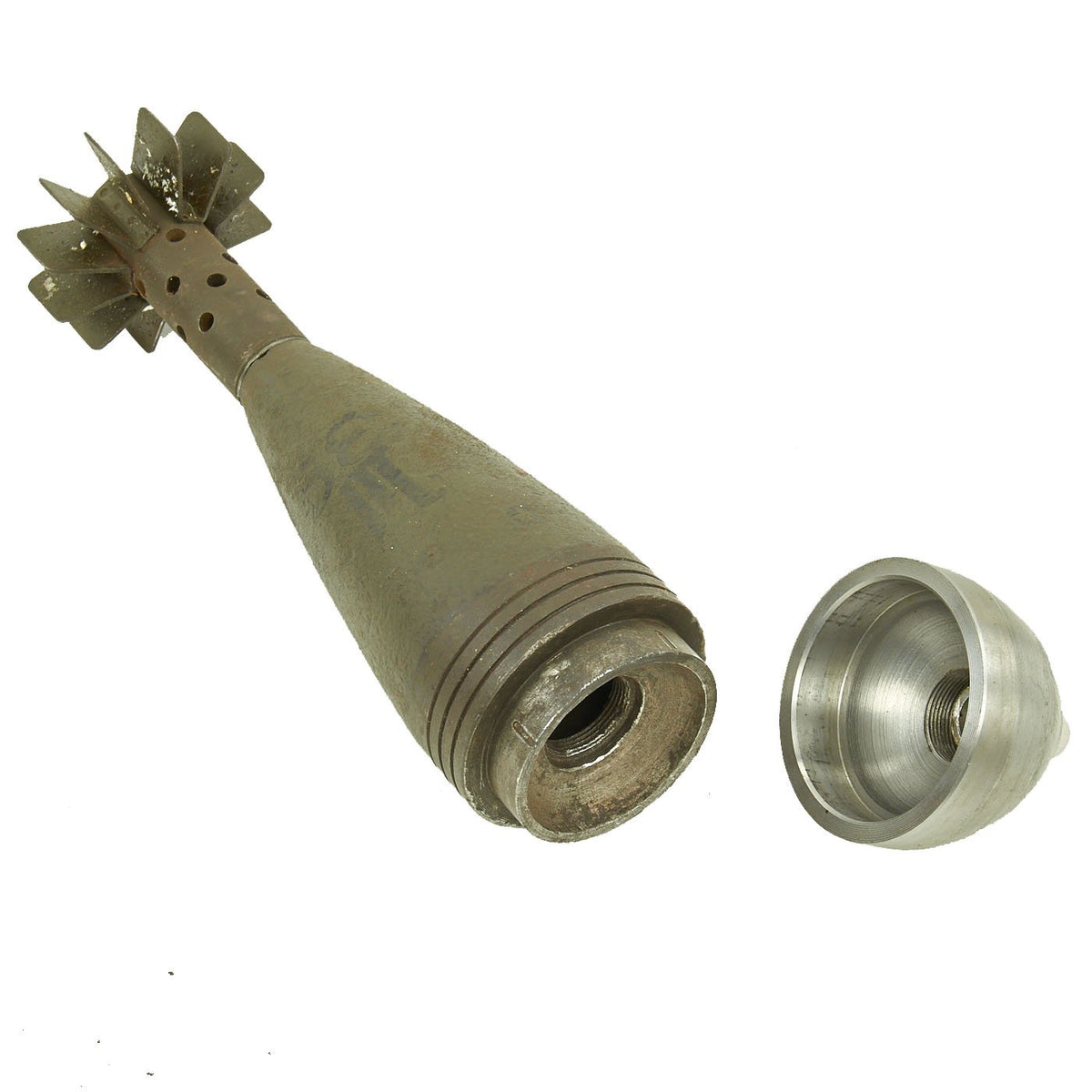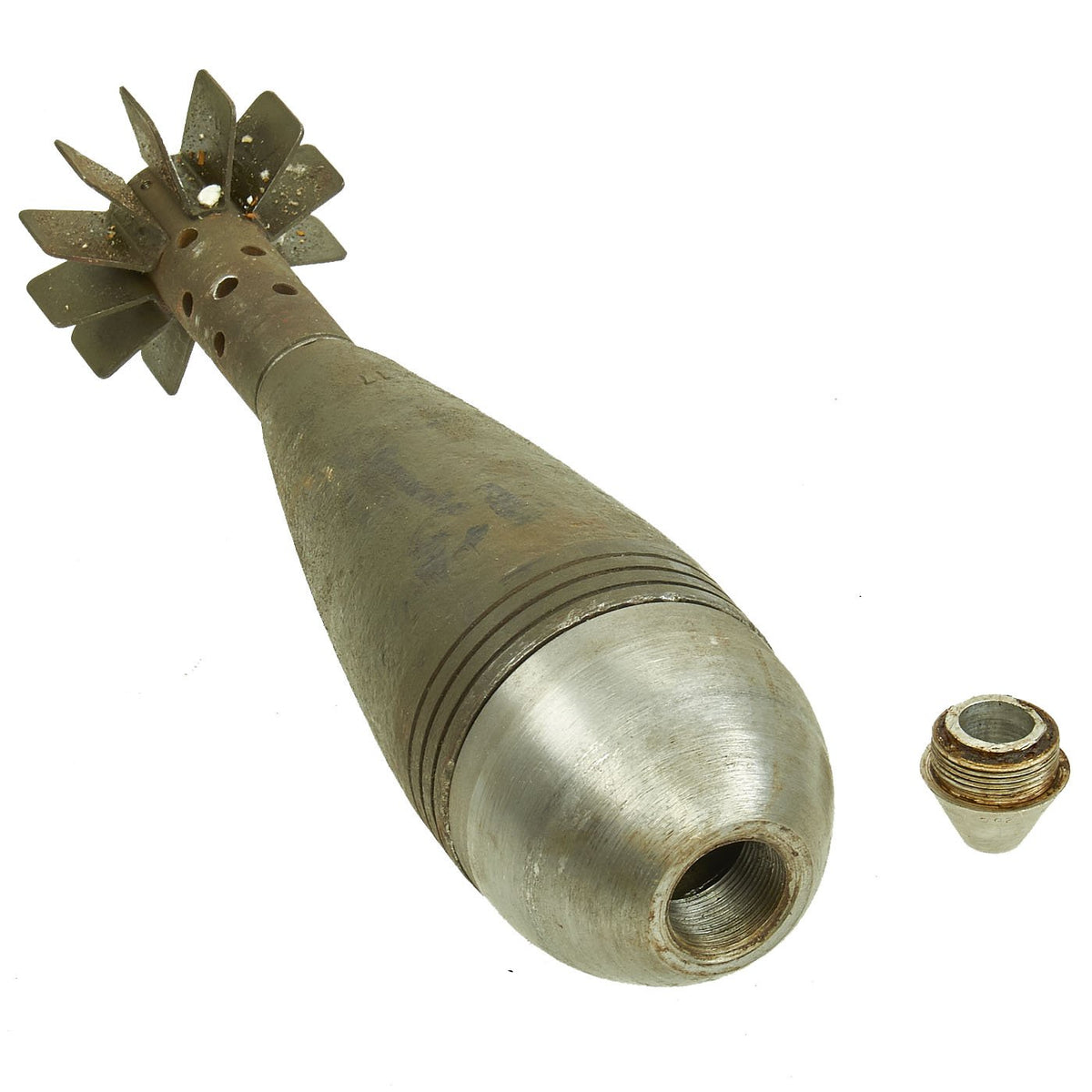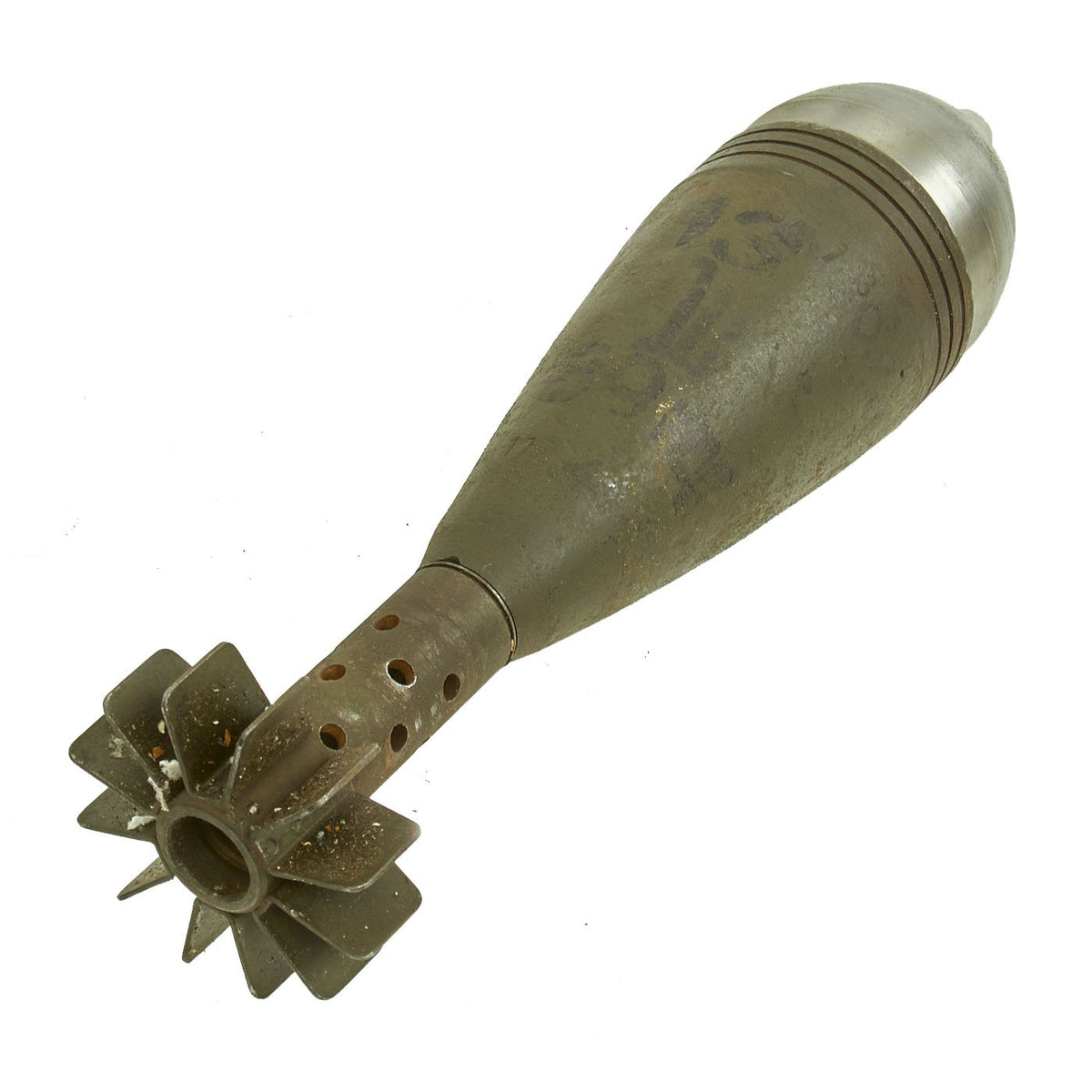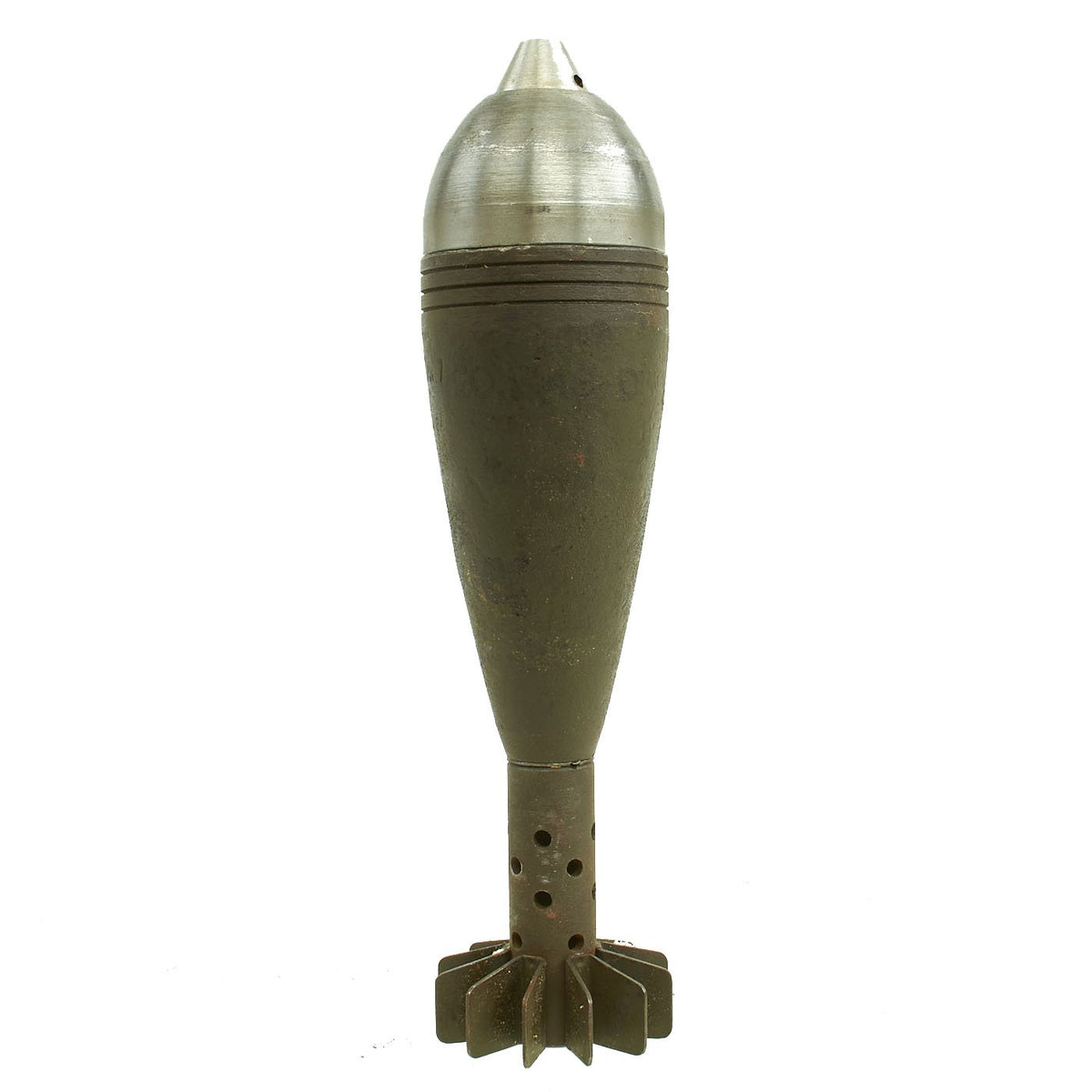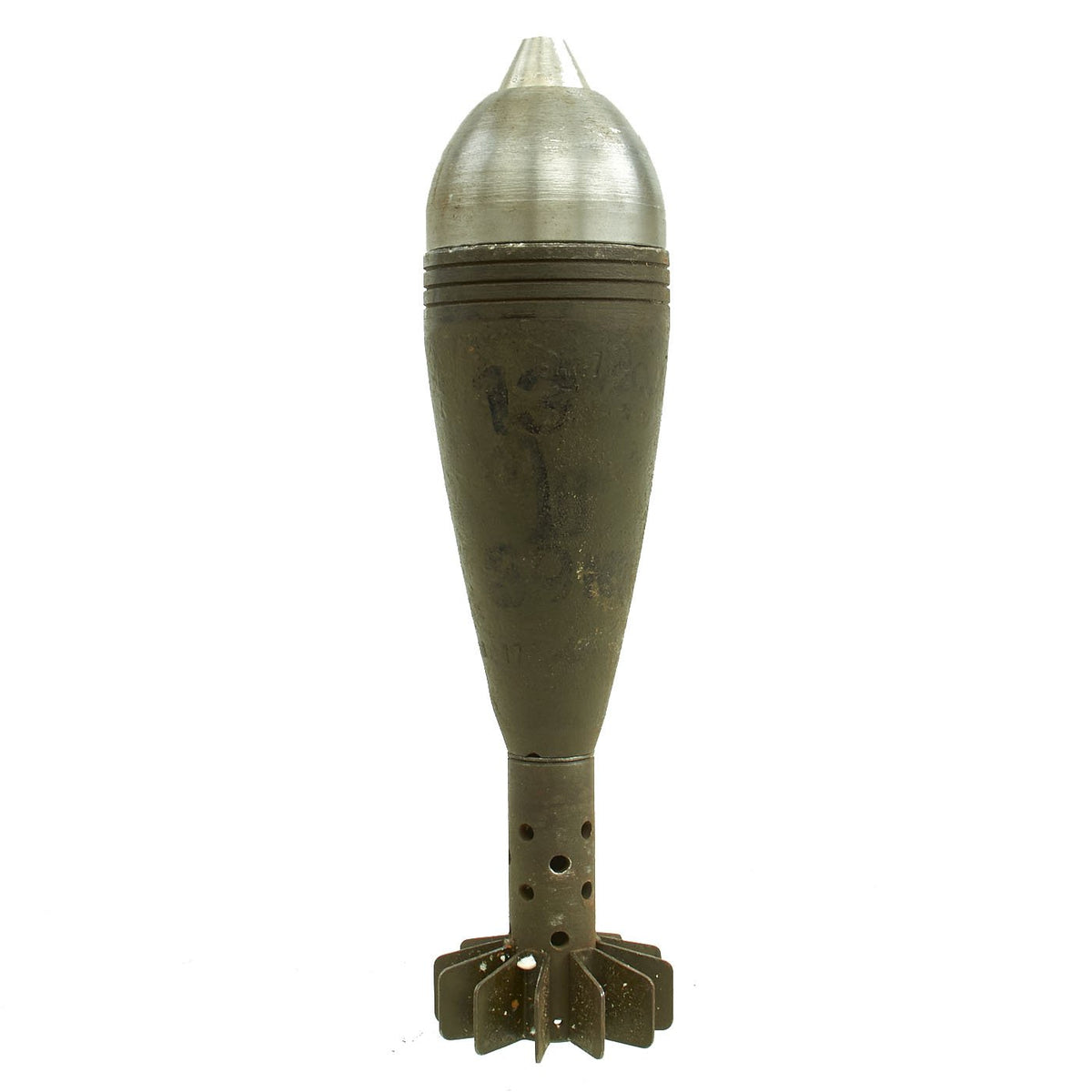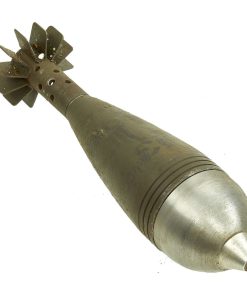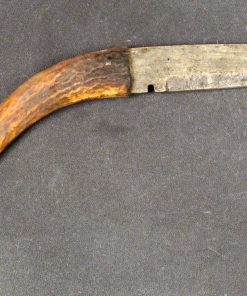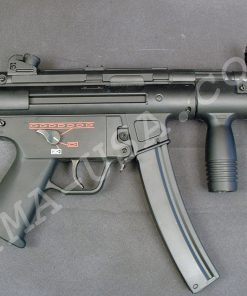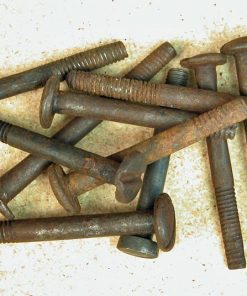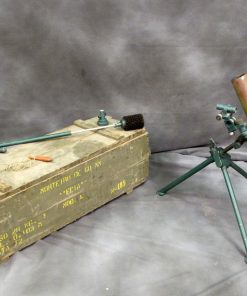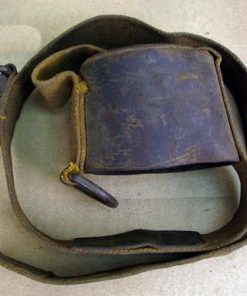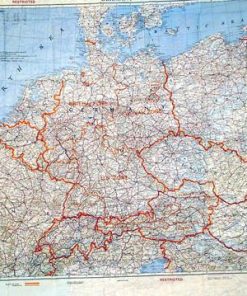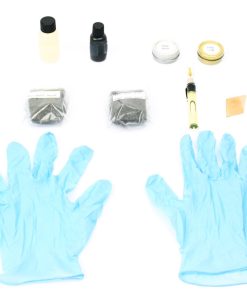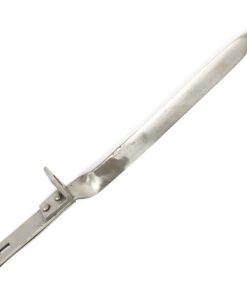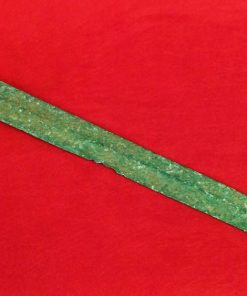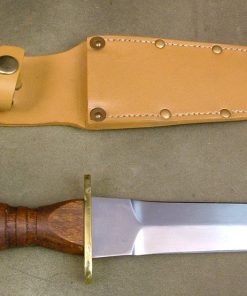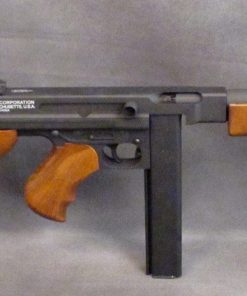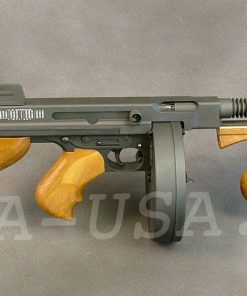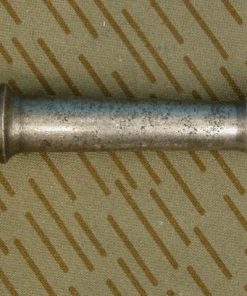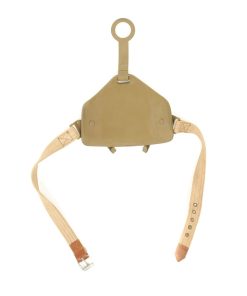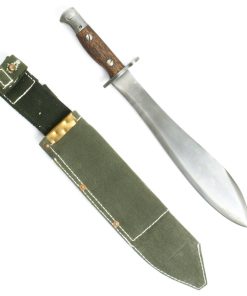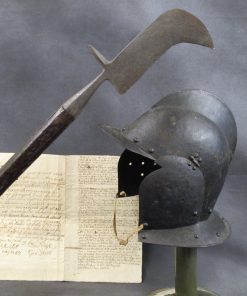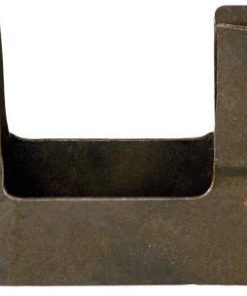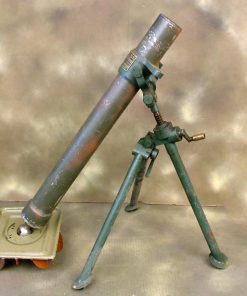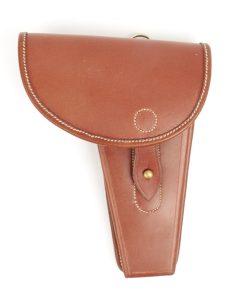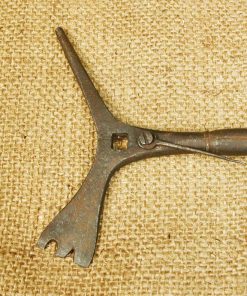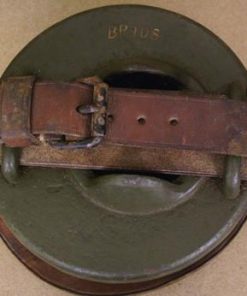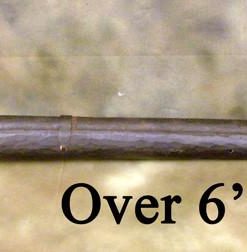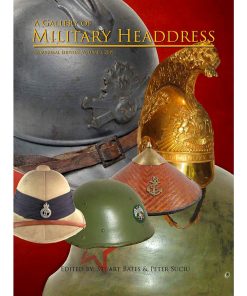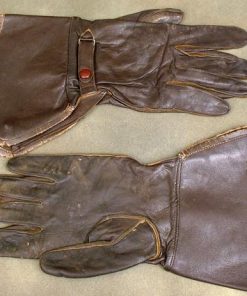Original German WWII Inert Wgr. 39 HE-Frag Bouncing Mortar Round for 8cm Granatwerfer 34 – GrW 34 Original Items
$ 595,00 $ 178,50
Original Item: Very Few Available. These are fantastic totally genuine High Explosive “Bouncing” fragmentation mortar rounds, officially known as the Wurf-granate-39 (Throwing Grenade 39 – Wgr. 39), which replaced the similar Wgr.38 developed the year before. These were both fired by the German 8cm Gr.W.34, and were streamlined high explosive anti-personnel fragmentation round. Both types had a finned tail unit which carries the out-shooting cartridge.
The Wgr.39 specifically had 400 g of explosives packed inside, and utilized a tiny rocket motor to “bounce” itself off of the ground of a target area by ejecting the nose cap, which is only friction fit. It would then explode in mid-air, spewing the dangerous fragmentation payload about the surrounding area. Unfortunately the “bouncing” or “jumping” types of these grenades proved too expensive to produce, and they were discontinued. This makes this an excellent opportunity to pick up a very rare German WWII mortar round!
8cm Gr.W.34 rounds were all fitted with a quick-acting and very sensitive nose fuse with booster made of alloy. Fuse arms itself by inertia forces once mortar shell left muzzle of the barrel. Until then it is safe. Mortar shell’s body was made of mild steel with bursting charge of T.N.T. inside, thick walls, screw-threaded fuse hole in the head. Mortar’s fin tail unit was designed to receive the out-shooting cartridge charge.
Each mortar round is offered in very good condition and totally inert. They all bear original paint and various German WW2 markings. All markings vary, see images for an idea of what you will get.
The 8 cm Granatwerfer 34 (8 cm GrW 34) was the standard German heavy mortar throughout World War II. It gained a reputation for extreme accuracy and rapid rate of fire, although it was not as effective when being operated by poorly trained crews.
The weapon was of conventional design and broke down into three loads (smooth bore barrel, bipod, baseplate) for transport. Attached to the bipod were a traversing handwheel and a cross-leveling handwheel below the elevating mechanism. A panoramic sight was mounted on the traversing mechanism yoke for fine adjustments. A line on the tube could be used for rough laying.
The 8 cm GrW 34/1 was an adaptation for use in self-propelled mountings. A lightened version with a shorter barrel was put into production as the kurzer 8 cm Granatwerfer 42.
The mortar employed conventional 8 cm 3.5 kg shells (high explosive or smoke) with percussion fuzes. The range could be extended by fitting up to three additional powder charges between the shell tailfins.
| Hand Select | No, Yes |
|---|
Fast Shipping with Professional Packaging
Thanks to our longstanding association with UPS FedEx DHL, and other major international carriers, we are able to provide a range of shipping options. Our warehouse staff is expertly trained and will wrap your products according to our exact and precise specifications. Prior to shipping, your goods will be thoroughly examined and securely secured. We ship to thousands clients each day across multiple countries. This shows how we're dedicated to be the largest retailer on the internet. Warehouses and distribution centres can be located throughout Europe as well as the USA.
Note: Orders with more than one item will be assigned a processing date depending on the item.
Before shipping before shipping, we'll conduct a thorough inspection of the items you have ordered. Today, the majority of orders will be delivered within 48 hours. The delivery time will be between 3-7 days.
Returns
The stock is dynamic and we cannot completely manage it because multiple stakeholders are involved, including our factory and warehouse. So the actual stock may alter at any time. It's possible that you may not receive your order once the order has been made.
Our policy is valid for a period of 30 days. If you don't receive the product within 30 days, we are not able to issue a refund or an exchange.
You can only return an item if it is unused and in the same state as the day you received it. You must have the item in its original packaging.
Related products
Uncategorized
Uncategorized
Uncategorized
Uncategorized
Uncategorized
Uncategorized
Uncategorized
Uncategorized
Australian WWII Owen MK1 Machine Carbine SMG Custom Fabricated Replica with Sling Original Items
Uncategorized
Uncategorized
Uncategorized
Uncategorized
Uncategorized
Armored Burgonet Helmet & Polearm from Scottish Castle Leith Hall Circa 1700 Original Items
Uncategorized
Armoured Fighting Vehicles of the World: AFVs of World War One (Hardcover Book) New Made Items
Uncategorized
Uncategorized
Uncategorized
Uncategorized
Uncategorized
